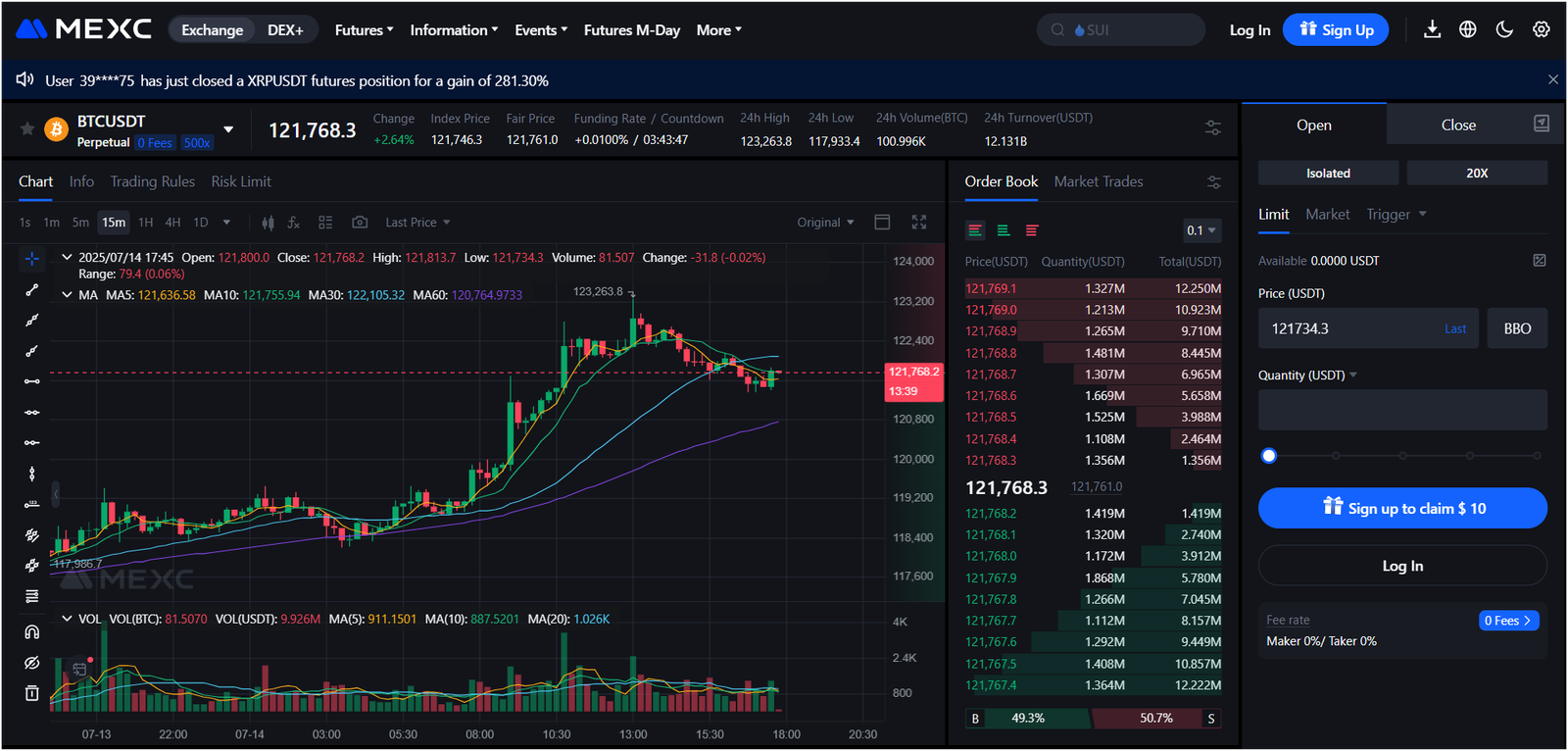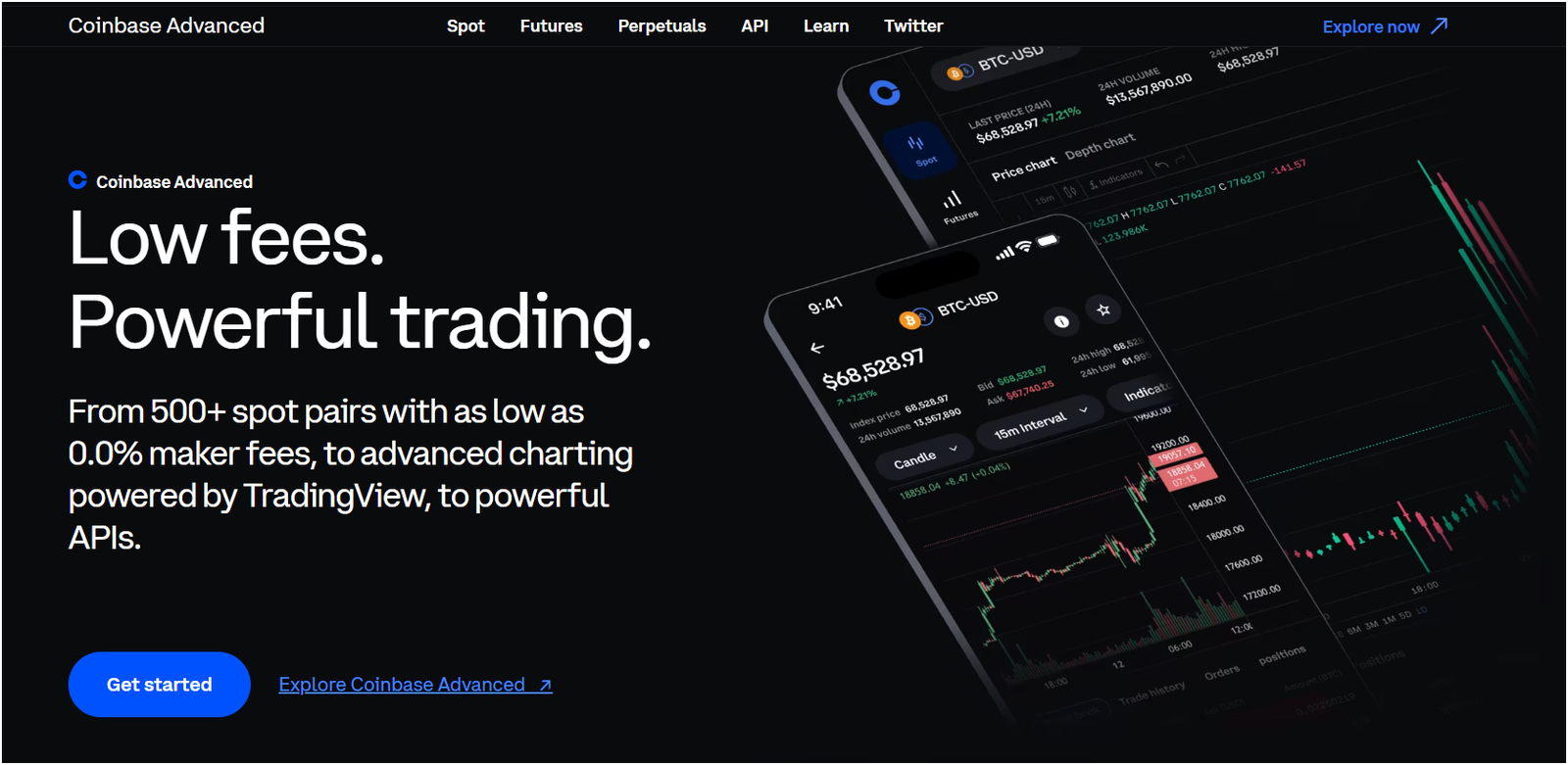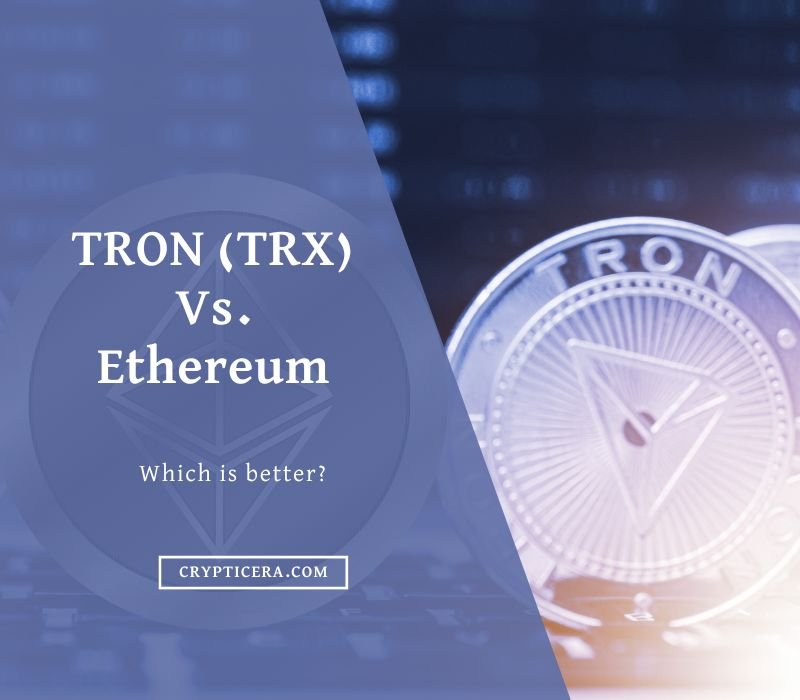MEXC and Coinbase are two popular crypto exchanges, but they serve very different types of users. MEXC offers low fees, no-KYC trading, and access to over 3,600 altcoins. Coinbase, on the other hand, is a fully regulated U.S. exchange known for strong security, fiat support, and beginner-friendly tools.
If you’re looking for privacy, fast altcoin listings, or futures trading, MEXC may fit better. But if you need legal compliance, fiat on-ramps, or reliable customer support, Coinbase is the safer choice.
This guide compares MEXC vs Coinbase in detail to help you pick the right exchange for your crypto needs.
MEXC vs Coinbase (Comparison Table)
| Factor | MEXC | Coinbase |
|---|---|---|
| Founded | 2018 | 2012 |
| Headquarters | Seychelles | San Francisco, USA (Remote only) |
| Regulation | Limited (operates in Seychelles, less stringent oversight) | Highly regulated (SEC, FinCEN, FCA, CSSF for EU MiCA license) |
| Supported Countries | Almost all countries (due to no-KYC trading) | 100+ countries, including USA, EU, UK, Canada |
| User Base | 50M+ users globally | 110M+ verified users |
| Supported Cryptocurrencies | 3,600+ coins, 4,000+ trading pairs | 250+ coins, 237 USDC trading pairs |
| Fiat On/Off-Ramp | Yes (limited, via third parties like Banxa, Simplex) | Yes (direct fiat support: USD, EUR, GBP, etc.) |
| Fiat Currencies | USD, EUR, AUD, others (via third-party providers) | USD, EUR, GBP, CAD, AUD, SGD, others |
| Spot Trading Fees | 0% maker, 0.1% taker | 0.4% maker, 0.6% taker (standard tier) |
| Futures Trading Fees | 0.00% maker, 0.01% taker | Not available for retail in most regions |
| Fee Discounts | Yes, using MX token (20% discount) | Yes, via Coinbase One ($30/month) |
| Staking | Yes, flexible and locked staking (e.g., 5-10% APY on USDT) | Yes, up to 5.1% APY on select assets (e.g., ETH, USDC) |
| Margin Trading | Yes, up to 10x leverage | Limited, not available in all regions |
| Futures Trading | Yes, up to 200x leverage | Yes, perpetual futures for BTC/ETH (up to 5x, non-US) |
| Derivatives Trading | Yes (futures, options, perpetual contracts) | Limited (only institutional in some regions) |
| Trading Volume (24h) | ~$1.5B (varies, CoinGecko data) | ~$2B-$5B (varies, CoinGecko data) |
| Liquidity | High for major pairs, moderate for altcoins | High for major pairs, strong for USDC pairs |
| KYC Requirements | Optional (10 BTC withdrawal limit without KYC) | Mandatory for all users |
| Security | 2FA, cold storage, anti-phishing codes | 2FA, 98% cold storage, FDIC insurance for USD (up to $250K) |
| Insurance Fund | No public disclosure | Yes, for custodial wallets (limited coverage) |
| Hacking Incidents | None reported | None major, minor phishing incidents |
| Mobile App | Yes (iOS, Android, advanced trading features) | Yes (iOS, Android, user-friendly) |
| Desktop Platform | Yes, web-based | Yes, web-based + Coinbase Advanced |
| API Support | Yes, for trading and market data | Yes, robust for developers |
| User Interface | Advanced, suited for experienced traders | Beginner-friendly, intuitive |
| Customer Support | 24/7 live chat, email, Telegram | 24/7 phone, email, help center |
| Withdrawal Fees | Low (e.g., 0.00005 BTC, varies by coin) | Higher (e.g., 0.0006 BTC, varies by coin) |
| Deposit Fees | Free for crypto, fiat varies by provider | Free for crypto, fiat varies (e.g., $10 ACH fee) |
| Minimum Deposit | None for crypto, fiat varies | $2 minimum for fiat |
| Minimum Withdrawal | Varies by coin (e.g., 0.001 BTC) | Varies by coin (e.g., 0.0001 BTC) |
| Withdrawal Speed | 5-30 minutes (network-dependent) | 1-5 business days for fiat, instant for crypto |
| Leverage Availability | Up to 200x (futures), 10x (margin) | Up to 5x (futures, non-US) |
| Copy Trading | Yes | No |
| Demo Trading | Yes | No |
| P2P Trading | Yes, limited regions | No |
| OTC Trading | Yes, for high-net-worth clients | Yes, for institutional clients |
| Earn Program | Yes (MX token rewards, staking) | Yes (USDC rewards up to 4%) |
| Referral Program | Yes, up to 30% commission | Yes, $10-$200 per referral |
| Launchpad/IEO | Yes, frequent token launches | No |
| NFT Marketplace | No | Yes, limited functionality |
| Corporate Accounts | Yes | Yes, Coinbase Prime for institutions |
| Tax Reporting | Basic tools | Advanced tools (e.g., Tax API, reports) |
| Mobile App Rating | 4.5/5 (Google Play, 1M+ downloads) | 4.7/5 (Google Play, 10M+ downloads) |
| Cold Wallet Support | Yes, via third-party integrations | Yes, Coinbase Wallet (non-custodial) |
| Institutional Services | Limited (OTC, high-volume trading) | Extensive (Coinbase Prime, custody) |
| Educational Resources | Moderate (guides, blog) | Extensive (Coinbase Learn, videos) |
| Community Engagement | Active (Telegram, Twitter events) | Active (Twitter, AMAs) |
| Transparency | Moderate (limited regulatory disclosure) | High (public audits, compliance reports) |
| Mobile Trading Features | Advanced charting, futures trading | Basic charting, portfolio management |
| US Availability | Yes | Fully available |
| EU MiCA Compliance | No | Yes, licensed in Luxembourg |
Read our honest, in-depth MEXC review for more information
MEXC vs Coinbase: No-KYC Trading
MEXC lets you trade without giving personal details, so you can sign up with just an email and password. You can trade and pull out up to 10 BTC daily without ID checks, which is great for people who want privacy. If you want to withdraw more, like 80 BTC with basic ID or 200 BTC with full ID, you’ll need to verify.
This makes MEXC quick and easy for users in places with fewer rules, but it’s blocked in the U.S., so some use VPNs, which can risk account freezes.
Coinbase, on the other hand, makes everyone do ID checks, like showing a driver’s license or passport. This follows strict U.S. rules and can take a few minutes to hours. Coinbase’s setup is good for people who want a platform that follows the law, but it’s slower to start.
MEXC is better for those who don’t want to share personal info, while Coinbase works for those who value safety and rules. MEXC’s no-ID option might face issues if rules tighten, like what happened with other exchanges.
Related: Best no-KYC crypto exchanges
Winner: MEXC, because it lets you trade without ID checks, unlike Coinbase, which requires them.
MEXC vs Coinbase: Supported Coins
MEXC has over 3,600 coins and 4,000+ trading pairs, covering big names like Bitcoin and Ethereum, plus tons of new or small coins. This is perfect for traders who want to jump on new tokens early, though some coins may not trade much.
Coinbase offers about 250 coins, sticking to popular ones like Bitcoin, Ethereum, Solana, and Cardano to follow U.S. laws. This smaller list is safer for beginners but limits choices for those chasing new coins.
MEXC’s huge selection is great for experienced traders, with new tokens added often through its Launchpad. Coinbase’s smaller range is easier for newbies and big investors who want trusted coins. CoinMarketCap shows MEXC leads in coin variety.
Winner: MEXC, because it offers way more coins (3,600+) than Coinbase’s 250.
MEXC vs Coinbase: Trading Fees
MEXC has super low fees: 0% for makers and 0.05% for takers on spot trades, and 0% maker and 0.02% taker for futures. If you use MEXC’s MX token, you get a 20% discount on taker fees, which is awesome for people trading a lot.
Coinbase charges more: 0.4% maker and 0.6% taker on Coinbase Advanced, plus 1.49% to 3.99% for quick buys with a bank card or PayPal, and a 0.5% spread. For example, a $10,000 spot trade costs $5 (taker) or $0 (maker) on MEXC, but $60 (taker) or $40 (maker) on Coinbase.
MEXC’s low fees are great for active traders, especially with futures up to 200x leverage. Coinbase’s higher fees make sense for its focus on safety and ease, but they hit your wallet harder.
Winner: MEXC, because its nearly free fees beat Coinbase’s higher charges.
MEXC vs Coinbase: Trading Features Compared
MEXC offers tons of trading tools, like spot trading, futures with up to 200x leverage, margin trading up to 10x, ETF trading, and copy trading, where you follow pro traders.
It has TradingView charts, a practice trading mode, and a Launchpad for new coins. With 3,600+ trading pairs and API support, it’s built for serious traders.

Coinbase has spot trading, staking, and limited futures (up to 5x leverage, not for U.S. users). Coinbase Advanced gives you charts and order books, but it doesn’t have copy trading or high-leverage options.

MEXC’s $1.5B daily trading volume keeps major pairs liquid, while Coinbase’s $2B-$5B volume is strong across its 250+ coins. MEXC suits pros who want lots of options, while Coinbase is simpler for beginners. MEXC also offers no-ID trading and airdrops, while Coinbase focuses on learning tools and following rules.
Winner: MEXC, because it has more trading tools like high-leverage futures and copy trading than Coinbase.
MEXC vs Coinbase: Who Wins?
MEXC stands out for pro traders with its 3,100+ coins, super low fees (0% maker vs. Coinbase’s 0.4%), and features like 200x leverage futures, copy trading, and no-ID trading. Its $1.5B daily volume and Launchpad for new tokens are great for those chasing altcoins. But its weak fiat support and unclear rules in Seychelles might worry some.
Coinbase, with 110M+ users and $2B-$5B daily volume, focuses on ease, safety (98% cold storage, FDIC insurance), and U.S. rule-following (SEC, FinCEN). Its higher fees and 250-coin limit work better for beginners and big investors who want trust.
MEXC is awesome for flexibility and cost, while Coinbase is safer for those in regulated places like the U.S. For most traders, MEXC’s low costs and variety win, but Coinbase is better for those needing a legal, simple platform.
Winner: MEXC, because its low fees, huge coin selection, and extra tools beat Coinbase’s simpler, regulated setup for most traders.
Is MEXC Better Than Coinbase for U.S. Users?
MEXC is better for U.S users if you want to trade without KYC and trade futures trading with 200x leverage.
MEXC’s no-ID trading, low fees (0% maker), and 3,100+ coins are tempting, but it doesn’t follow U.S. laws like Coinbase does (SEC, FinCEN).
Coinbase works fully in the U.S., offering 250+ coins, strong safety (98% cold storage, FDIC insurance up to $250K), and an easy-to-use platform. Its fees are higher (0.4% maker, 0.6% taker), and ID checks are required, but it’s legal and reliable.
MEXC Pros and Cons
Pros:
- No‑KYC trading up to 10 BTC/day
- Supports >3,600 coins and launchpads
- Low spot/futures fees (down to 0%)
- Advanced features: futures, staking, VIP, Proof of Reserves
Cons:
- Less transparent fiat on‑ramp
Coinbase Pros and Cons
Pros:
- Fully regulated, publicly traded U.S. exchange
- Full fiat support (bank, card, Apple Pay)
- Strong security, insurance, reserves audits
- Institutional and staking services
Cons:
- Mandatory KYC from day one
- Higher fees (0.5–2% retail)
- Limited altcoin range (~250 in U.S.)



